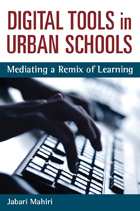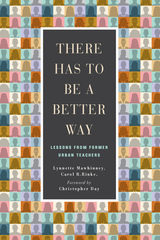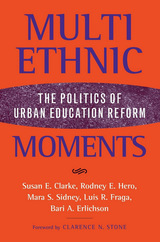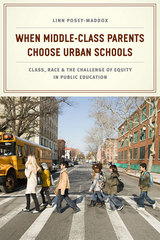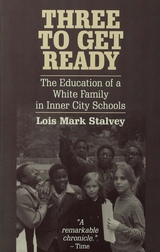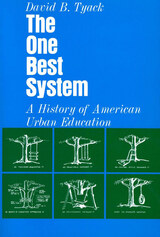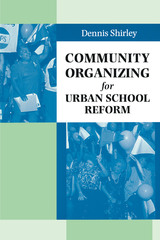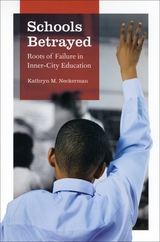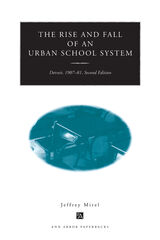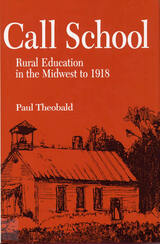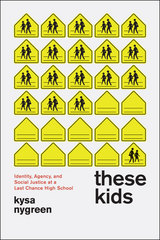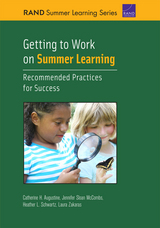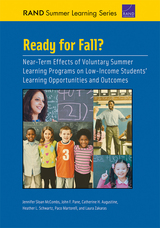“Marketing Schools, Marketing Cities is a brave and subtle exploration of the contradictions that haunt attempts to use public education reform as a strategy for holding affluent, highly educated families in revitalizing center cities. Maia Bloomfield Cucchiara shows how the relentless focus on marketing public schools undermines their democratic purposes and stratifies citizens, exacerbating divisions of class and race. Beautifully written and powerfully argued, this book demands close attention by everyone concerned with the fate of cities, schools, and democracy.”
— Michael B. Katz, author of The Price of Citizenship
“Even though inequality exists, policy makers have traditionally clung to the ideology that all children are equally valuable. Maia Bloomfield Cucchiara’s thoughtful, readable book shows how a popular reform aimed at keeping middle-class parents in the city ended up challenging this tenet of a democratic society. In their zeal to attract more middle-class families to the city, policy makers and educators adopted a stance where (white) middle-class families were seen as more valuable and more worthy than the existing working-class families. Cucchiara’s carefully done ethnographic research shows why the policy was seen as a good idea. It is the rare book that shows the processes through which inequality is sustained in daily life; extremely interesting and thought-provoking—highly recommended!”
— Annette Lareau, author of Unequal Childhoods
“Often the critical discussion of the privatization and marketization of schools takes place on a very rhetorical and general level and does little to help us understand how, specifically, schools are becoming more like businesses or more heavily influenced by markets. Maia Bloomfield Cucchiara provides a very clear and compelling example of the involvement of private people and business in public education and of the ways in which market strategies have been at work here. She offers a major contribution that provides a good, detailed look at how ‘market mechanisms’ play out in practice.”
— Lisa Stulberg, New York University
“Cucchiara makes us think long and hard about the validity of the claim that local officials ought to maximize property values and its corollary, the link between resources and location.”
— Education Review
“Cucchiara skillfully details one city’s campaign to rebrand its public elementary schools in a deliberate attempt to attract and retain professional families with children, and she provides a thorough consideration of both the benefits to the city that result from such marketing drives and the substantial inequalities that can emerge when the preferences of the affluent are privileged above those of working-class families. Along the way, she uses her findings to present broad discussions of issues ranging from the proper goals of urban education policy to the meaning of citizenship in contemporary American society.”
— Chase M. Billingham, City & Community
“The ethnography laid out by Cucchiara in this book absolutely must reach the ear of policy makers and advocates for market reform across all sectors. While professional class families do bring value to a city, how they are attracted and who is impacted as a result is a vital consideration, as the author describes in depth. What at first seem to be fairly extreme policy recommendations given in the last chapter soon become the only remedy one can imagine. The United States has long been a country that prides itself in providing equal opportunity on the surface but has failed to meet this responsibility. Maia Cucchiara has acknowledged inequity and laid out a path to the future where every child truly has an equal opportunity to succeed.”
— Corey Savage, Teachers College Record
“Cucchiara, reporting on two years of ethnographic study, vividly describes how middle class and upper middle class, mostly white parents from an elite neighborhood used their economic, social, and political capital to make Grant School an attractive alternative to the private and suburban schools they could also choose. . . . Marketing Schools, Marketing Cities is an important book. It reveals the flaws in 'market' and 'choice' strategies for improving or more equitably distributing schooling, with clear implications for other policy areas. Clearly, markets favor those with more resources. The book offers valuable insights for scholars and ordinary citizens who want to make sense of not just school reform, but the predicaments cities struggle with after federal policy makers and corporate decision makers abandoned them. It reminds us that we are all citizens, in the same boat.”
— Howell Baum, Journal of Urban Affairs
“Sheds light on why so many district schools were (and continue to be) seen as ‘schools of last resort’ and why sustainable school reform remains so elusive. Drawing on census and school district statistics, newspaper articles, local reports, and her own extensive interview and ethnographic data, she illustrates the consequences of applying market logic to public education.”
— Jerusha Conner, Educational Researcher


